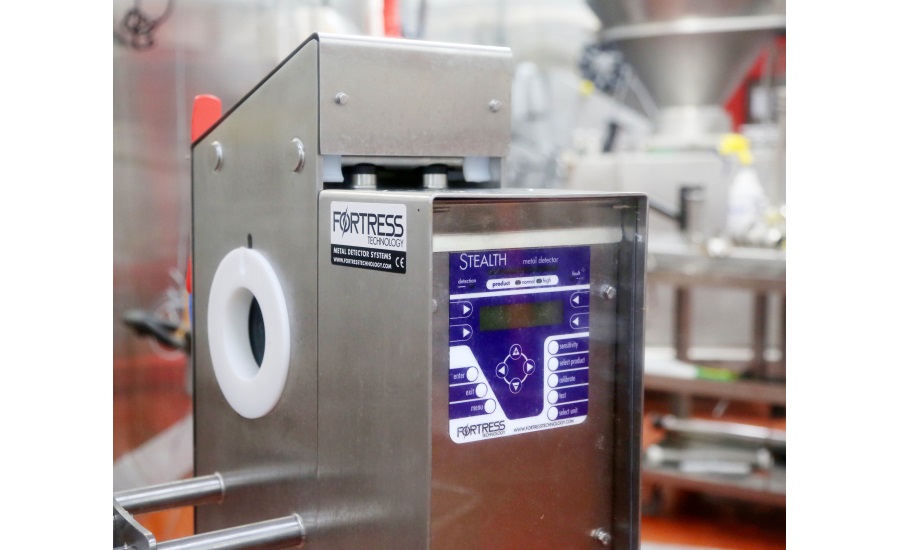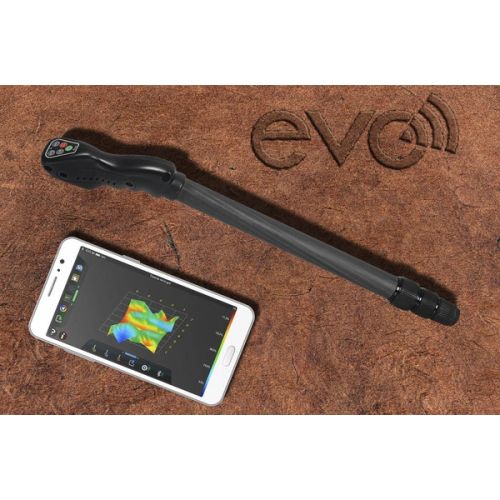Sneaking a phone through a metal detector is not recommended. It is illegal and could have serious consequences.
Attempting to bring a phone into a space where metal detectors are in place can be tricky. While it is not advisable and could get you into trouble, there may be situations where you have no other choice but to try.
If you are attending a concert or event with strict security measures, you may think that trying to sneak your phone through the metal detector is worth the risk. Whether it is to take photos, access the internet, or communicate with others, not having your phone with you can be inconvenient. However, it is crucial to recognize that trying to sneak a phone through a metal detector is illegal and could lead to you being kicked out or detained. Rather than attempting to break the rules, it is better to abide by them to avoid any legal consequences. If you went to know more about stealth techniques: getting your phone past metal detectors, keep reading!

Credit: www.snackandbakery.com
Basic Principles Of Metal Detectors
How Metal Detectors Work
Metal detectors were first invented during world war ii as a means of detecting landmines. They’ve come a long way since then and are now commonly used in airports, courthouses, and other secure locations. Here are the key points to understand how they work:
- Metal detectors use a magnetic field to detect metallic objects. When a metallic object passes through the magnetic field, it disturbs the field, creating an electric current.
- The detector’s coil is responsible for generating the magnetic field. It works like an antenna, transmitting a signal when it encounters a change in the magnetic field.
- The receiver unit amplifies the signal picked up by the coil and interprets it to determine the location and size of the metallic object.
Detection Capabilities
Despite their effectiveness, metal detectors do have limitations. Here’s what you need to know about their detection capabilities:
- Metal detectors can detect any type of metal, including coins, keys, and weapons. However, non-metallic objects such as plastics and ceramics will not set off the detector.
- The depth at which a metal object can be detected depends on several factors. For example, the size of the object, the type of metal, and the frequency of the detector’s magnetic field can all affect the detection capabilities.
- Most metal detectors have a standard sensitivity level that can detect a weapon at a distance of around 6 inches. However, security personnel may adjust the sensitivity level depending on the situation.
Limitations
While metal detectors can be highly effective, there are limitations to consider. Here are a few of the key limitations:
- Metal detectors cannot distinguish between dangerous and harmless objects. For example, a metal detector may detect a belt buckle or jewelry and mistake it for a weapon.
- Metal detectors do not detect non-metallic objects, meaning that a determined individual could potentially sneak a weapon or unauthorized item through a metal detector by disguising it as a non-metallic object.
- In some instances, a metal detector may produce a false positive, indicating that an individual is carrying a weapon when they are not. In these cases, the individual will need to undergo additional screening to confirm that they are not a threat.
Understanding the basic principles of metal detectors and their limitations is crucial for anyone attempting to sneak an item through a metal detector. While it’s not recommended to attempt to sneak your phone or any other prohibited item through a metal detector, having a solid understanding of how they work can be useful information for those seeking to do so.
Factors Affecting Detection Accuracy
Types Of Metal Detectors
Metal detectors come in various types, and each type utilizes specific technology to detect metal objects. The following are some of the most common types of metal detectors:
- Very low-frequency detectors (vlf): Vlf metal detectors are the most widely used type of detector. They work by emitting a magnetic field and detecting any disturbances caused by metal.
- Pulse induction detectors (pi): Pi detectors are primarily used to detect deep targets. They work by sending short, powerful pulses into the ground and detecting the reflected pulses from metal objects.
- Beat-frequency oscillation (bfo): Bfo detectors are the simplest and least expensive type of detector. They emit two different frequencies and listen for a beat frequency when metal is detected.
Sensitivity And Frequency Settings
The sensitivity and frequency settings of a metal detector greatly affect its accuracy. The sensitivity setting determines how much of the metal object needs to be present to trigger a detection, while the frequency setting determines how deep the detector can scan for metal objects.
- Sensitivity settings: A higher sensitivity setting will be more accurate in detecting smaller metal objects, but this can also result in more false alarms. Therefore, the sensitivity should be set based on the terrain and metal object being searched for.
- Frequency settings: A higher frequency setting is suitable for detecting smaller metal objects, while a lower frequency is required to detect objects deeper in the ground.
Environmental Factors That Impact Accuracy
Several environmental factors can affect the accuracy of metal detectors, and understanding them is important in sneaking your phone through a metal detector.
- Soil composition: The composition of the soil can affect a metal detector’s sensitivity and range. For instance, mineralized soils can cause false signals, while red or black soils can impact the detection depth.
- Weather condition: Poor weather conditions, such as heavy rain or snow, can cause false signals and reduce the detection’s accuracy.
- Electromagnetic interference: Electronic devices such as mobile phones, wi-fi signals, and power lines can cause electromagnetic interference and impact a metal detector’s accuracy.
- Size and shape of the object: A metal detector’s accuracy can be affected by the size, shape, and orientation of the metal object being detected. For example, a small, flat object will be harder to detect than a larger, cube-shaped object.
Understanding the factors that affect detection accuracy can be useful in sneaking your phone through a metal detector. By following the tips mentioned above, you can increase your chances of success.
Techniques For Concealing Your Phone
Are you worried about getting caught with your phone at a metal detector checkpoint? It can be nerve-wracking to think about losing your device or facing punishment for trying to smuggle it through. But fear not; there are techniques you can use to conceal your phone and slip past security.
Understanding How Phones Are Detected By Metal Detectors
Before we delve into the techniques, it’s essential to understand how metal detectors work and detect phones. Metal detectors are programmed to pick up signals from metal objects, including cell phones. These devices emit electromagnetic fields, which can trigger the metal detector’s alarm.
So, to keep your phone from detection, you must hide it in a way that reduces or eliminates its electromagnetic field’s signaling.
Choosing The Right Location For Concealment
The location and method of concealment are key factors that will determine how successful you will be in getting your phone past metal detectors. Here are some strategic locations you can try hiding your device:
- Inside a book or notepad
- Inside a cuff bracelet
- Inside your sports bra for females
- Underneath your insoles
- In your scarf or headwear
- Inside a bag of snacks or food
Using Non-Metallic Materials For Cover
Once you have chosen a concealing location, the next thing to consider is the materials used to cover your phone. Non-metallic materials are the best option when trying to avoid detection by metal detectors. Here are some non-metallic covers you can use:
- A phone case made from silicon or plastic
- Rubber phone holder
- Cloth or denim phone pouch
- Cardboard or paper sleeve
- A sock to slip your phone into
Remember never to use metal or metallic covers, including phone cases or buckles on bags or clothing. These metallic accessories can give away your device’s location and cause it to be detected.
By following these methods, you can sneak your phone past metal detectors without raising suspicion. Always remember to exercise caution and try not to draw attention to yourself. Happy phone concealing!
Alternatives To Concealing Your Phone
Factors To Consider When Choosing Alternatives
If you’re looking for alternatives to concealing your phone when going through a metal detector, there are a few factors to keep in mind. Here are some things to consider:
- Size and weight: Some alternatives might be bulkier or heavier than others, making them less convenient to carry around. Consider the size and weight of the alternative you’re considering before making a decision.
- Convenience: How easy is it to use the alternative? Is it something you’ll need to fumble with or reposition frequently, or is it something you can quickly and easily access?
- Effectiveness: While no alternative is guaranteed to work every time, some may be more effective than others. Research the effectiveness and reliability of any alternative you’re considering.
- Legality: It’s important to note that some alternatives could be illegal in certain situations or locations. Make sure that you’re not breaking any laws or regulations by using a particular alternative.
Using Locker Facilities
One alternative to sneaking your phone through a metal detector is to store it in a locker. Here are some points to consider:
- Check if locker facilities are available: Some locations, such as airports and courthouses, may have locker facilities available for storing personal items.
- Be prepared to pay: In some cases, you may need to pay a fee to use a locker. Make sure you have some cash on hand, just in case.
- Allow extra time: Using locker facilities may add some time to your commute. Consider this when planning your schedule.
Employing Communication Apps And Services
Another option is to take advantage of communication apps and services that allow you to access your phone remotely. Here are some things to keep in mind:
- Choose a reliable app or service: Research different apps and services to find one that’s reliable and easy to use. Some popular options include google voice, skype, and WhatsApp.
- Make sure you have the necessary equipment: Depending on the app or service you choose, you may need to have access to a computer or other device in order to use it.
- Be aware of potential security risks: While using a communication app or service can be a convenient alternative, it’s important to be aware of potential security risks. Make sure you’re using a reputable app or service and take steps to protect your personal information.
Remember that sneaking your phone through a metal detector is not recommended, and in some cases, it may be illegal. Consider these alternatives if you need to keep your phone with you, but always prioritize safety and legality.
Legal And Security Considerations
Policy And Regulations On Phone Detection And Confiscation
Before attempting to sneak your phone through a metal detector, it’s important to be aware of the policies and regulations in place. Here are some key points to keep in mind:
- Most public places, such as airports, courthouses, and government buildings, have metal detectors in place for security reasons.
- It is generally prohibited to bring electronic devices, including cell phones, through metal detectors in these settings.
- If you are caught trying to sneak your phone through a metal detector, security personnel may confiscate your device and potentially subject you to further investigation.
Consequences Of Getting Caught
The consequences of getting caught trying to sneak your phone through a metal detector can be serious. Consider these potential outcomes:
- Your phone may be confiscated, leaving you without a means of communication.
- You may face additional security screening measures that are time-consuming and invasive.
- In extreme cases, you may be detained or even arrested for attempting to breach security protocols.
Guidelines On Safe Use Of Stealth Techniques
If you do decide to attempt to sneak your phone through a metal detector, it’s important to do so safely and responsibly. Here are some guidelines to follow:
- Use a phone case or carrier that will not set off the metal detector alarm.
- Keep your phone in a pocket or bag that is separate from other metal objects you may be carrying.
- Consider using a decoy phone that resembles your real phone but does not have any sensitive information stored on it.
- Be aware of your surroundings and avoid drawing attention to yourself while attempting to sneak your phone through a metal detector.
Remember, attempting to sneak your phone through a metal detector is not only against the rules but also potentially dangerous. It’s always best to leave your phone at home or in a secure location before entering a space with metal detectors in place.
Frequently Asked Questions Of How To Sneak Your Phone Through A Metal Detector
How Can I Sneak My Phone Through A Metal Detector?
Sneaking a phone past a metal detector may seem like a daunting task, but it can be done. One way you can try is to hide it in your shoe or underwear. Alternatively, you can also place it in a bag of chips or a tampon wrapper.
What Items Should I Avoid Bringing Near A Metal Detector?
When passing through a metal detector, it’s important to avoid wearing metallic clothing or accessories such as jewelry, belts, and watches. You should also refrain from carrying any metallic items, such as coins, keys, or other electronics, that may set off the alarm.
Is It Legal To Sneak A Phone Through A Metal Detector?
No, it’s not legal to sneak a phone through a metal detector, especially if it’s for unlawful purposes. In some places, such acts can even lead to criminal charges. Always follow the rules and regulations, and if you need to bring your phone with you, check with the security personnel first.
What Can Happen If My Phone Sets Off The Metal Detector?
If your phone sets off the metal detector, security personnel may ask you to remove and place it in the tray for scanning. In rare instances, they may also require you to undergo a full-body scan or a physical pat-down to ensure you are not carrying additional items that may pose a security threat.
Can I Avoid Metal Detectors Altogether?
Avoiding a metal detector altogether may not be possible in certain places, such as airports or government buildings. However, in other locations, such as museums or hotels, it may be possible to bypass the metal detector by seeking alternative entrances or checking with the staff for assistance.
Conclusion
Through sneaking a phone through a metal detector, one can avoid losing their device or exposing sensitive information. There are multiple methods one can utilize to achieve this, such as using a phone case made of specific materials or utilizing specialized containers.
However, it is important to remember that attempting to sneak a phone through a metal detector can still be illegal, and one should take caution before making any decisions. It is always important to consider the consequences of one’s actions and prioritize one’s safety and security.
Whether it is for convenience or necessity, sneaking a phone through a metal detector is not a decision to be taken lightly. With proper research and preparation, one can ensure they are keeping themselves and their belongings safe while navigating through metal detectors. Thank you for reading our post about stealth techniques: getting your phone past metal detectors.


